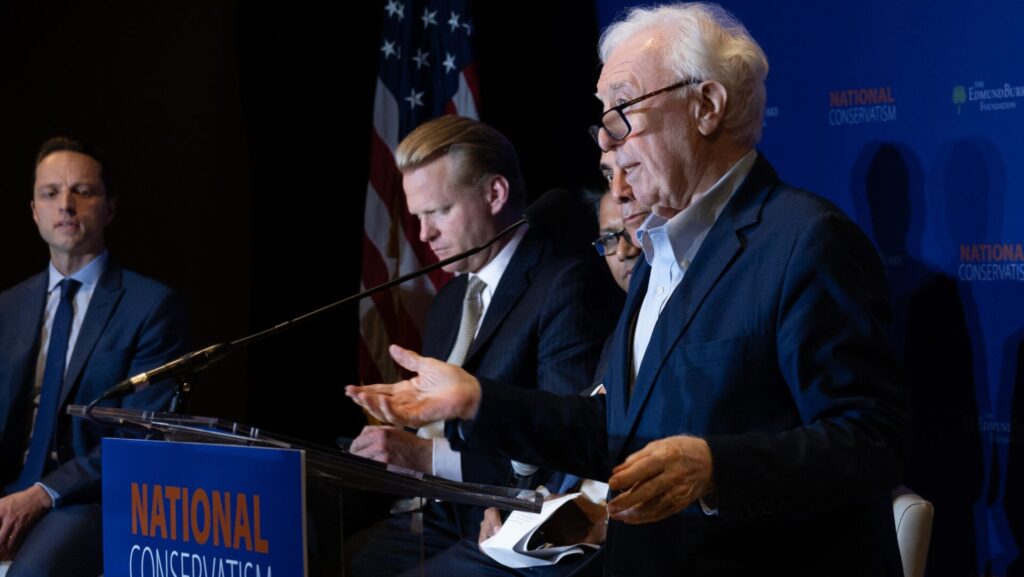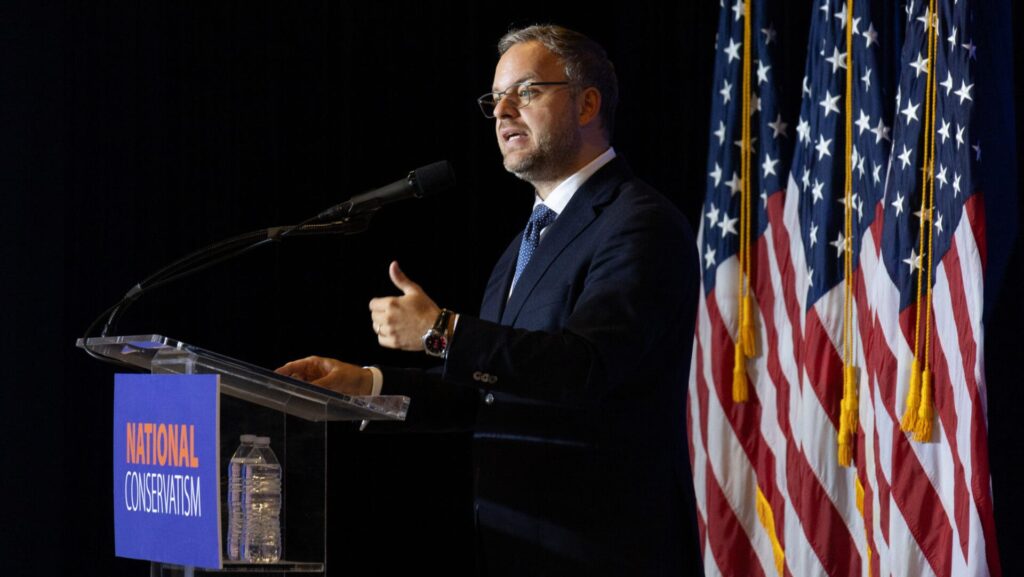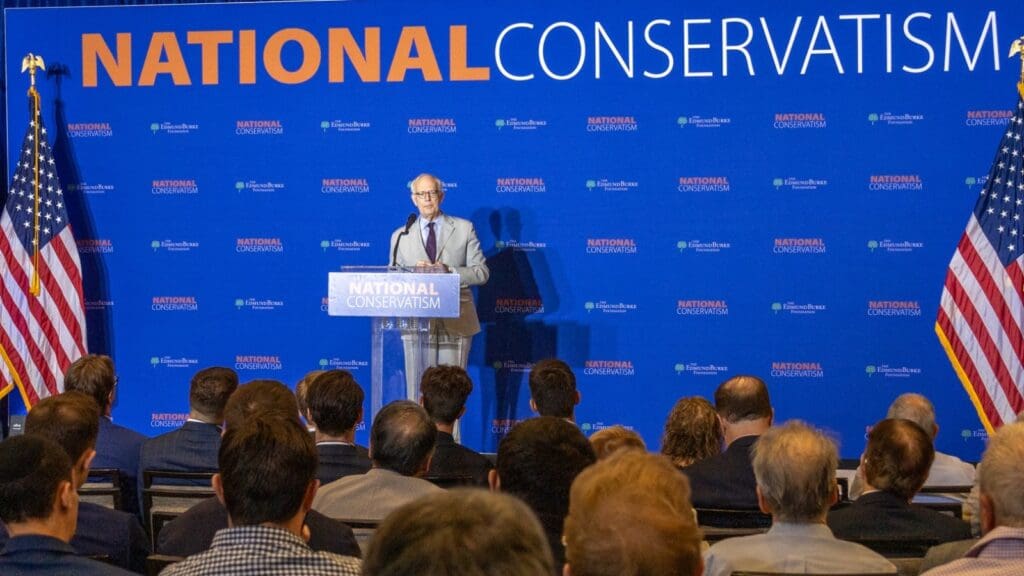
‘For me, this isn’t about politics. It’s about the young girl who gets up at 5 in the morning for training, hoping that one day her hard work will be enough…This executive order is a step toward ensuring that female athletes—past, present, and future—don’t have to question whether their chances are truly equal.’

In his remarks at the National Conservatism Conference in Washington, D.C., Danube Institute President John O’Sullivan argued that NATO’s success hinges on sustained US leadership, adequate defence spending by European members, and a clear strategic vision that adapts to contemporary security dynamics.

Political Director of the Prime Minister of Hungary Balázs Orbán had the opportunity to give a brief insight into his main ideas discussed in his two works on contemporary Hungarian foreign policy, The Hungarian Way of Strategy and Hussar Cut: The Hungarian Strategy for Connectivity, at the recent National Conservatism Conference in Washington, DC. He delivered a comprehensive speech that basically critiqued neoliberalism and advocated for national conservatism instead.

DeMuth emphasized the core principles of national conservatism: advocating for sovereign nations with secure borders, promoting welfare for all citizens, and ensuring a government actively concerned with maintaining a healthy culture. Over the past five years, the movement has gained significant traction, he reminded, noting that it is now achieving success in the voting booths and is becoming mainstream. DeMuth also underscored the movement’s alignment with the Freedom Conservatism Statement of Principles.

‘Horrible wars are going on right at this moment in the world, and no one in the West seems to care that much. Why does something happening in the Middle East make such repercussions and make emotions run this high in Western universities? What is the ‘secret appeal’ of taking the side of the Palestinians in the Israel–Hamas war that inspired so many students in Ivy League schools to go out and protest in the way they did? May it be the case that it is the schools themselves that generate false narratives of the history behind this conflict to manipulate students into an inevitable conclusion?’

Hungarian Conservative is a quarterly magazine on contemporary political, philosophical and cultural issues from a conservative perspective.